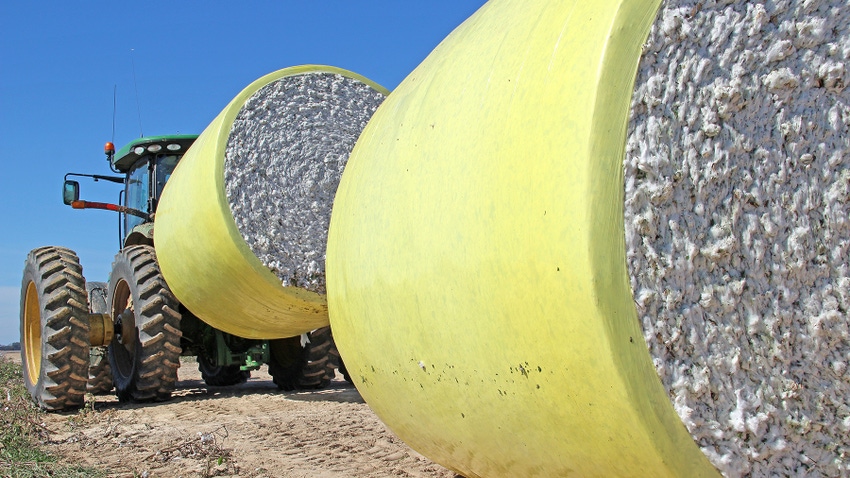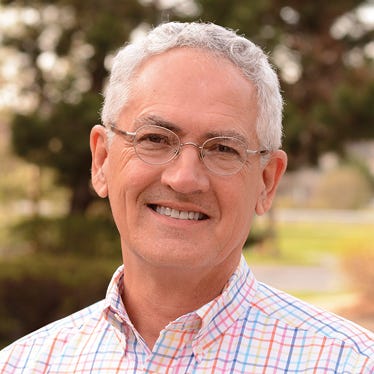
Bill Mayfield was a dynamic force for the cotton industry. His influence on the industry helped move cotton into the efficiency focused era we see today. Although I would love for him to be a household name outside of ag, I don’t believe he would have wanted that.
He was humble and always credited those around him for his success.
Mayfield passed away on the first of April. He worked for USDA and was instrumental in guiding many cotton improvements that have advanced the cotton industry.
He was also a well-respected friend.
“He was a good fishing buddy and friend in general,” said Tommy Valco, retired Cotton Technology Transfer Coordinator, USDA Agricultural Research Service at Stoneville, Miss.
Valco took over the position after Mayfield retired. “Bill was just dedicated to the cotton industry in all aspects, both in ginning and in the production part of it,” said Valco, “He definitely served his clientele very well.”
Change positions
And after Mayfield retired, he didn't really retire at all, he just changed positions, Valco noted with a chuckle.
He advised the industry, became mayor of his hometown of Silerton, Tenn., was president of his local Hardeman County Farm Bureau and farmed his family land.
“Bill Mayfield had the unique ability to understand complex technical concepts and translate them into common sense communications and programs that could be easily understood for implementation on the farm or at the cotton gin,” said Fred Johnson, former vice president, administration at the National Cotton Council.
“He could effectively communicate with everyone in the cotton industry - from a textile executive to an assistant ginner,” said Johnson. “I think he related easily because they understood his total commitment to the cotton industry and his deep respect for each person's role and contribution.”
Herb Willcutt, who worked with Mayfield for more than 50 years beginning in the early 1970s said, “He was a true southern gentleman. He was a friend and mentor. He was also a leader in the industry and taught me a lot over the years.”
Mayfield helped Willcutt, who has retired from Mississippi State, work through several research projects, including seed house ventilation systems.
Mayfield was part of the team the helped integrate the module building process into the cotton ginning system.
Gin schools
He met with Willcutt, Johnson and others to initiate a training program and certification for cotton ginners.
“Without Bill Mayfield pushing, the gin schools would've never happened,” said Harrison Ashley, executive vice president of the National Cotton Ginners Association. The gin schools educate ginners on safety and effective management of the ginning system. The schools have trained thousands of gin workers.
“Bill was largely responsible for getting the ginning certification program up and going,” said Willcutt.
“Bill put his all in everything he did and always at full speed,” said Johnson.
Johnson noted that over a period of years, he observed Mayfield managing schools, conferences, seminars and video shoots - regularly working 12-14-hour days.
Mayfield was raised and educated in Tennessee, before going to Mississippi State to earn his master’s degree in ag engineering.
He went to work for USDA in 1966 as a research engineer at the gin lab in Stoneville, Miss., and worked for a time for the Extension Service at Auburn University. He returned to USDA in 1981.
He accomplished far more than this space can justify. His coauthored book, "Who Really Invented the Cotton Gin?: Unraveling the Mystery and Folklore of a Critical Agricultural Innovation," is available through online sources.
Harrison Ashley was the most recent recipient of an award named in honor of and largely funded by Mayfield, the Mayfield Cotton Engineering Award, presented annually by the American Society of Agricultural and Biological Engineers.
“He called me to congratulate me,” said Ashley. “And I said, ‘well, that's pretty darn good coming from the person that the award was named for.’”
Of course, Mayfield deflected the fact that the award was named after himself and credited a lot of other people for making him look good, according to Ashley.
“He deserved all that credit himself, but didn't ever want to take it,” Ashley said.
I think he deserves the credit, too, and just wish the world knew how much he did for agriculture.
About the Author(s)
You May Also Like






